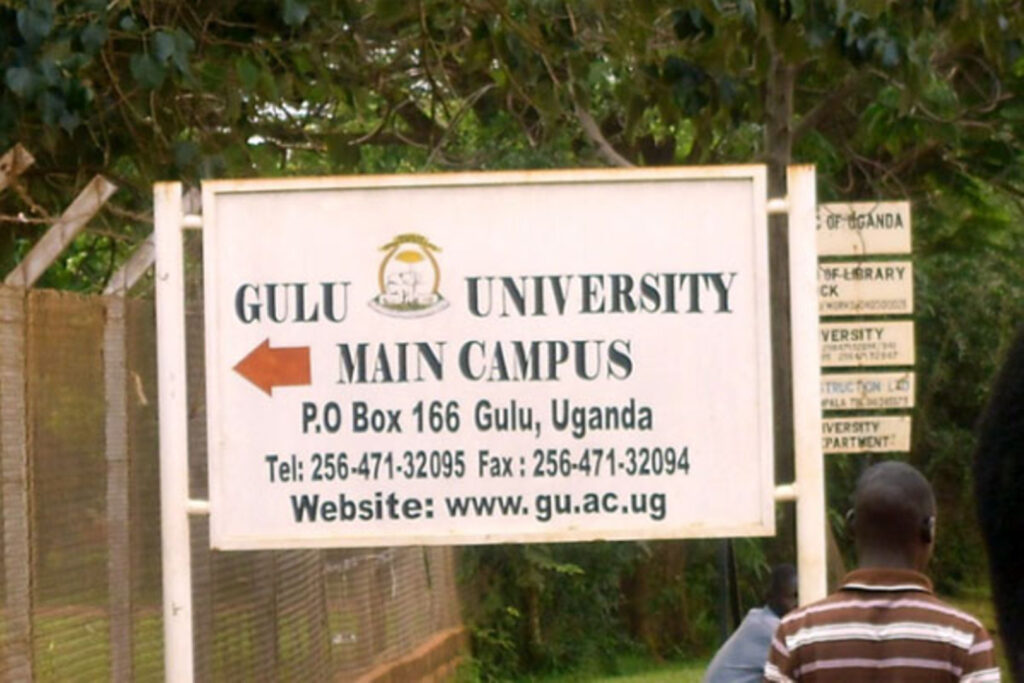
GULU. Gulu University has partnered with journalists to disseminate work done by researchers .
According to Dr Laloyo Stella, the director of The Institute of Peace and Strategic Studies at Gulu University, journalists play a big role in informing the public what others are doing in different fields .
“Getting my research published in the media has earned me three flights outside Uganda, where I have met very resourceful people,” Dr Laloyo Stella, the director of The Institute of Peace and Strategic Studies at Gulu University, told fellow academicians during a workshop .
The three-day workshop aimed at bridging the gap between researchers and journalists at Gulu University was organised under the Empowerment of Science Journalists and CSOs in in Uganda and Rwanda for Science-based Advocacy (EReBA) with funding from the Danish Development Research Network (DDRN).
During the workshop, it was noted that researchers and academicians are yet to embrace the idea of having their works published through traditional and new media channels, largely due to mistrust.
While appealing for accurate reporting from journalists, the Gulu University vice-chancellor, Prof. George Openjuru, recalled an incident where he ran into trouble with senior government officials after being misquoted by a journalist.
“I had an interview with this journalist here at the university, and we spoke about certain things. However, the journalist went and published the exact opposite. He said I had stated that the Minister of Health had blocked the construction of the Gulu University Teaching Hospital. Can you imagine?” he said.
Prof. Openjuru, however, noted that he was happy that the media and researchers were partnering with journalists to improve reporting of research works as opposed to keeping them on the shelves in ivory towers.
“Journalists now know how researchers think and vice versa. With this connection, we need to move to number 2 or number 3,” Prof. Openjuru said.
During the workshop, researchers and university lecturers showcased some of their research works, including green charcoal that is being fronted as an alternative to solid fuels and reproductive health interventions to curb teenage pregnancy.
Simon Okello, a lecturer of environmental science at Gulu University and a PhD student, showcased his findings about green charcoal, which he said can serve as an alternative to charcoal/ firewood and save the environment.
“We are currently piloting the project and hope that through publicity in the media, it can be rolled out across the country and save our forests that are being destroyed for firewood and black charcoal,” he said.
The project is under the Green Charcoal Innovations to Mitigate Climate Change in Northern Uganda (UPCHAIN).
The workshop saw researchers and lecturers acquire skills on how to communicate using traditional and social medi
The workshop climaxed with the recognition of the outstanding science journalists who took part in the initial EreBA project.
The best journalist was Tony Abet, who was followed by Olivier Mukaya. Also recognised were the best researchers and civil society members in networking.
The best researcher in networking was Dr Agatha Alidri, the Coordinator of the Building Stronger Universities programme at Gulu University, while Peter Wamboga Mugirya, the director for communication and partnerships at the Science Foundation for Livelihoods and Development (SCIFODE).
William Balikuddembe, the chairman of the Uganda Science Journalists Association, hailed the partnership, saying a lot of useful information with great potential to guide development is stuck on the shelves of research institutions simply because researchers, journalists and civil society organisations are working in isolation.
“The EreBA partnership will bring these three groupings to the same table to address issues of public interest, especially towards policy change.
The researchers provide evidence, the journalists make it easy to understand and access, and the CSOs amplify the call for change. We have tested it and are confident that it will work,” he said.